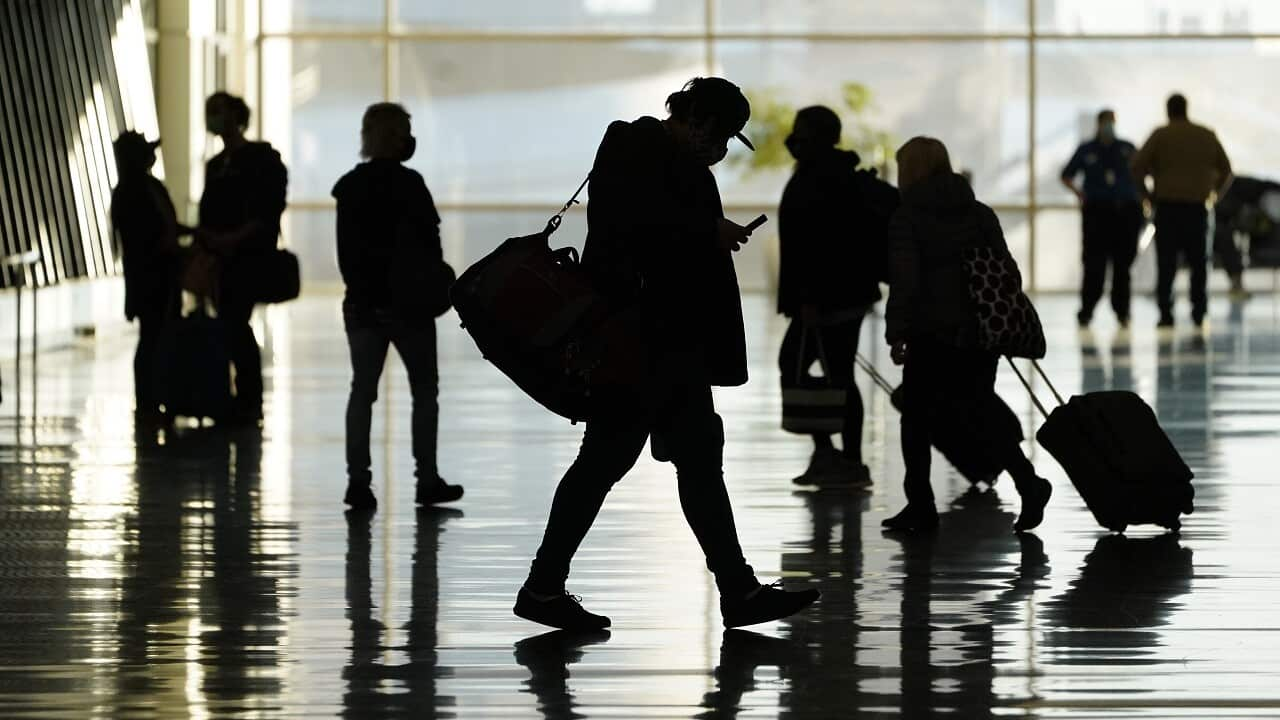The new COVID-19 variant, Omicron, has been designated as a variant of concern by the World Health Organization, with widespread speculation the existing COVID-19 vaccines may not be as resistant to it.
New formulations to vaccines may be needed, with Pfizer saying it could tweak its existing vaccine within 100 days and Moderna announcing it could achieve the same result by early 2022.
Who will get the booster shots?
Australia’s COVID-19 booster vaccination program kicked off in October and since 8 November, booster doses have been available to anyone aged 18 and over who has had both doses of their primary course of COVID-19 vaccine at least six months ago.
ATAGI is not currently recommending booster doses to people aged 12 to 17, and severely immunocompromised people who have had a third dose to complete their primary vaccination. How soon should you get a booster shot?
How soon should you get a booster shot?

People at the Boondall mass vaccination hub in Brisbane on 18 September 2021. Source: AAP
The recommended interval for the third dose for the severely immunocompromised is between two and six months after the second dose of vaccine.
In exceptional circumstances, such as an outbreak or intensification of immunosuppression, the interval may be reduced to four weeks.
For the general population, anyone aged 18 and over should wait at least six months after their second dose.
How do booster shots work?
The vaccine technology underlying the booster shots is the same as the first and second vaccine doses.
The booster shot is aimed at ensuring the level of immunity and protection from the earlier doses of the vaccine is maintained at a certain level as the effect from the antibodies wears off over time.
Dr Emily Edwards from the Department of Immunology and Pathology at Monash University said the building blocks for booster shots draw from the knowledge developed from vaccines in the past, including for hepatitis and human papillomavirus (HPV) which form part of the immunisation programs in schools.
"It is all about building blocks," she told SBS News in October. "The technology may have been there for years, and that is the case with the vaccines and with the immunological tools we use to monitor how you respond to the vaccine and the virus."
Which booster shot should you get?
The ATAGI advice recommends the third dose to be Pfizer, which is an mRNA vaccine, irrespective of what vaccine a person received for their primary course of vaccination.
The government expects other vaccines, including Moderna, to be added as approvals are provided by the Therapeutic Goods Administration.
Although not preferred, AstraZeneca can be used for the third dose for those who had it for their earlier shots and did not suffer any adverse reaction, such as anaphylaxis. It can also be used for those who had a significant adverse reaction after a previous mRNA vaccine.
How should I book?
Bookings are available for eligible people via a medical practitioner.
You can book via the government's website.

A healthcare worker speaks to a patient after administering a Covid19 vaccination at a pop-up vaccination van in Epping, Melbourne. Source: AAP
How effective are booster shots?
Scientists are racing to find out whether or not the current vaccines offer protection against the Omicron variant.
In the case of the Delta variant, however, the vaccines continued to maintain high levels of protection against severe hospitalisation and death.
Dr Edwards said as Australian jurisdictions reopen and exit lockdown, other public health tools such as masks and physical distancing will still be necessary. But the effectiveness of vaccines still remains high - including for booster shots.
"If you have a vaccine, you're more likely to be protected from that than someone who isn't. There will still be some infections, unfortunately. But it does mean it [may] still , which is really important, especially in this global pandemic."
Are there any risks or side effects?
As the booster shots are the same vaccines used for the earlier shots, the advice on side effects is expected to track along the same lines. But health authorities around the world are closely observing any long-term effects.
Do we have enough doses for everyone?
In October, Greg Hunt said Australia is well prepared to provide booster doses.
"With over 151 million Pfizer, Novavax and Moderna vaccines already secured for supply into the future, Australia is well prepared to provide booster doses as approvals are provided by the medical experts," he said.
Infectious diseases expert Sanjaya Senanayake has previously said internationally, the discussion of booster shots in rich nations has put the spotlight on vaccine equity as it applies to the provision of first and second doses for developed nations.
"At the end of the day, if we're protected from severe illness and hospitalisation [in Australia], we should try and help the rest of the world," he said. "We have to be selfless to be selfish when it comes to COVID-19 and vaccination," he added, referring to herd or population-wide immunity in the Asia-Pacific region.
Additional reporting: Shuba Krishnan
